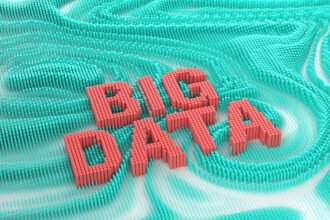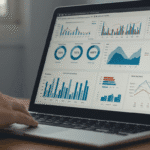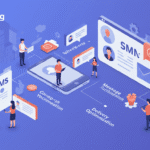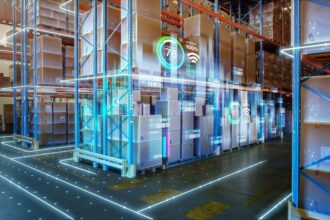We have talked about some of the biggest changes that AI technology has created in recent years. Countless industries have been impacted by ChatGPT and other forms of AI technology.
The healthcare sector is among the biggest impacted by advances in AI. Demand for AI in healthcare is growing around 40% a year. This is not to say that there aren’t concerns about incorporating AI in healthcare. For example, a poll from Pew Research found that 37% of people fear that AI is going to make healthcare security worse, while only 22% feel it will make it better.
Nevertheless, the overall benefits of AI in healthcare seem to outweigh the downsides. One of the biggest benefits is that it could help prevent burnout among nurses and other healthcare professionals.
AI Can Keep Nurses from Experiencing Burnout
Healthcare careers have one of the highest rates of professional turnover. Nearly half of all nurses quit the profession entirely within five years of graduation. Many factors contribute to this alarming statistic. Nursing is hard. The shifts are long. Many nurses work evenings, weekends, and holidays.
The experiences are also challenging. Healthcare workers often deal with people during the most difficult moments of their lives. Not only is hard to watch someone struggle with a debilitating illness, but it is also alienating. Not everyone can find out that one of their patients died and then go home later that night for dinner with their family.
All of these factors contribute to high levels of nurse burnout. There are medical technologies that can help streamline work processes and reduce job-related stress. AI can be especially helpful for stopping burnout, among the other benefits it offers for healthcare workers.
Below, we take a look at what these technologies are and how they can help healthcare workers manage burnout.
AI
To say that AI’s developing prominence in all areas of professional and personal life is controversial would be an understatement. Nevertheless, it has been shown to simplify many tasks that used to take significant human effort— often at a higher level of quality.
There are now AI programs that can help automate care plan updates, compliant standards guidelines, and other tasks that once required direct, and often tedious effort from nurses.
These tools represent AI at its best. They do not threaten human jobs. They simply make them easier. Nurses benefitting from AI tools have more time to focus on patient care— which is usually what inspired them to take on the job in the first place.
Beyond being able to tackle mundain administrative tasks, AI can also assist various healthcare professionals with more involved thought-processes like diagnosis, patient mental-health, expedite clinical trials through mass data consumption and much more. Think of AI as an assistant in many cases rather than a leadership technology.
A prominent example that is being incorporated even in AI’s infancy is onboarding patients and other preliminary care procedures. When visiting a doctor there is always paperwork and conversation filled with questions to assess the health scenario of patients, removing doctors and nurses from their daily responsibilities. With an AI-assisted onboarding process patients can find themselves receiving care more efficiently and with more catered personalization.
Telehealth Technology
Telehealth technology gives nurses a little bit more flexibility when it comes to taking care of patients. Now, people can ask minor healthcare questions online. This greatly reduces the influx of people coming into doctors’ offices.
For nurses, this means that they can reduce the business of their schedules. It also means they come into contact with fewer germs. A busy doctor’s office can see 30-50 people a day. That’s a lot of interactions with potentially sick people.
In certain cases, telehealth nurses even have the option to work from home, further adding to the comfort of their work environment.
Wearable Health Technology
Wearable healthcare devices make patient monitoring much easier than it used to be. For everyday use, devices can be as simple as a Fitbit. Something that takes vitals, tracks health information and provides in-depth analytics on patient health.
These can also include heart monitors and other more vital forms of health-tracking technology. While these devices don’t directly impact nurses’ quality of life, they can provide tangible benefits in the form of better patient outcomes.
Remote monitoring technology is also often implemented on hospital floors. This makes it much easier to check in on patient well-being without physically needing to visit their bedroom. These devices also improve patient outcomes— making it easier to detect issues quickly, and they can make long shifts on crowded floors much easier.
Robotics
The entrance of robotics in the healthcare industry is both slow and cost-prohibitive. Still, the tech to automate many of the physical responsibilities traditionally assigned to doctors and nurses has been under steady development.
The most obvious example of this technology is the Davinci— a robot that performs surgery at a higher patient success rate than human doctors.
It costs about one million dollars.
Naturally, this is a significant barrier for many hospitals. As with any technological development, there will eventually be significant competition which will drive the price down.
“Robotic nurses,” is another slowly emerging concept that could significantly change the lives of nurses all over the world. While robotic nurses won’t be able to replace their human counterparts, they will be able to take vitals and perform many of the other physical responsibilities that can make nursing jobs so demanding.
These developments give healthcare workers more time to strategize and interact with patients. Soft, human skills that technology cannot replace.
Self-care/Communication Applications
There are now self-care and hospital communication applications that are designed specifically for nurses. They may feature mindfulness techniques that help manage and reduce stress. Many also feature communication interfaces that let nurses working at the same hospital connect.
These communication networks are a great way to help nurses support one another and feel a sense of community. They can also serve practical functions. For example, nurses using these applications may have an easier time finding someone to trade shifts with them.
While self-care technology can’t replace professional intervention for people who need mental health services, it can help improve day-to-day experiences.
Conclusion
The purpose of technology is to simplify and improve tasks. The products described above do that in ways that can improve nurses’ work lives. However, to truly boost retention and get to the heart of the problems facing healthcare workers, there will need to be a systemic change. The phrase, “there’s an app for that,” just doesn’t quite apply.
Many hospitals are making moves to improve their hours, raise compensation, and provide more mental and emotional health resources to their staff. These changes will ultimately be more impactful than any technological development. These are just some of the many challenges that AI can help resolve in healthcare.
As quality-of-life considerations become standardized throughout American hospitals, nurses will hopefully find that the job is more manageable.
Of course, the most effective way to ensure this is through conversation. Hospital administrators that want to boost morale should ask their staff directly what measures could be applied to reduce worksite stress.
Not only will this improve burnout reduction efforts but it will also make healthcare workers feel seen and heard.











